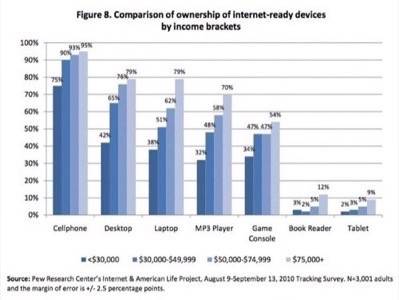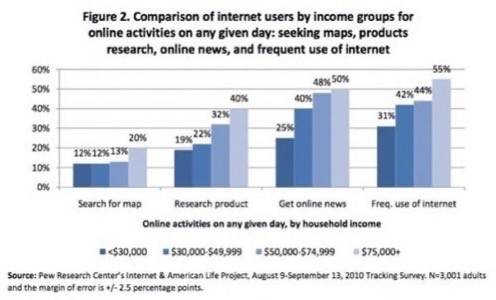Wealthier households are more likely to use the Internet on any given day than those in lower income brackets, according to the latest research from the Pew Internet and American Life Project. Ninety five percent of households earning over $75,000 a year use the Internet at least occasionally, compared with 70% of those living in households below that income level. The study offers a more nuanced view than simply “the poor can’t afford it,” pointing to disparities at various income levels.

The study found that even among regular Internet users, income makes a difference in Internet usage and access in ways that race, gender, and educational attainment do not: 93% of those higher-income Internet users have broadband at home while only 85% of those with an annual income of less than $75,000 do. The number of broadband subscribers drop to 64% of those who earn less than $50,000.
As Internet connections become increasingly mobile, broadband Internet at home is no longer a sufficient measurement for access. The Pew Research also found a disparity between higher and lower-level income brackets and cellphone ownership: 95% of those earning above $75,000 have a cellphone as opposed to 83% of those earning less money.

Internet users at the higher income levels are more likely to go online multiple times per day, both at home and at work. 86% of those at higher income levels reported being online more than once a day, as opposed to just 54% of those at lower income levels.
The research also found that different income levels use the Internet in different ways, with what Pew calls different “intensity of use.” Those at higher income levels are checking email (93% of them do so), accessing news online (80%), paying bills (71%), and research products (88%). In comparison, only 34% of those at the lowest income brackets get their news online.

As Internet access becomes increasingly crucial for all manner of personal, professional, and civic engagement, this digital divide between income levels will become important.










